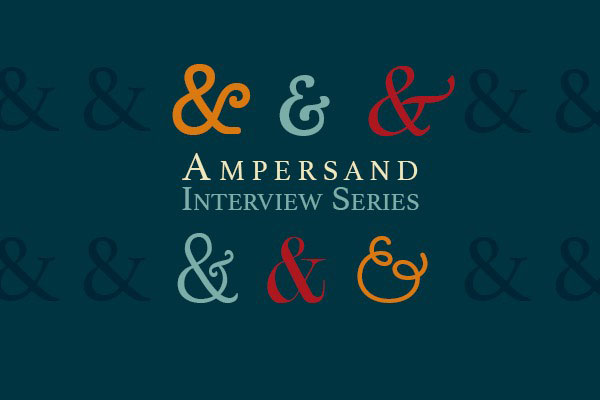
Check out the latest interview in our Ampersand Interview Series with Robert Campbell.
In the latest interview in our series, Ampersand, we spoke with Robert Campbell about literary influences, reading one’s work aloud, and dreaming. Robert Campbell’s poems, “Labor #12” and “Greek Rush,” appeared in Issue 33.
A&L: Who are some of your literary (or non-literary) influences?
Robert Campbell: I love Brigit Pegeen Kelly. Song is probably one of my favorite books. Also John Berryman, Dean Young, and Elizabeth Bishop. My favorite poet is Emily Dickinson, whose work, I believe, is still being taught to young people everywhere in a pitiful, belittling way that is really unworthy of her. Mary Ruefle writes about Dickinson really beautifully. Occasionally, I find myself influenced by folklore, landscapes, and horror films. All kinds of things. I’m drawn to images and topics that feel strange and lonely.
A&L: Describe your writing space. Where do you write most often? What is your routine?
RC: I do have a dedicated home office, which is an incredible privilege, but I can’t say I write there regularly. Honestly, I have written on my phone, on receipts, in the margins of junk-mail, anywhere. I usually begin a poem with an image or a line, and I try to keep a running “pool” of these self-prompts so that I can draw them out when I have sustained time to write. Some folks really benefit from regularly scheduled writing time, but it has never worked for me. In the early stages of a poem, I rarely sit down to write. That probably sounds strange, but I rarely write the first couple of lines of a poem until I’ve rolled them around in my head and in my mouth for a little bit to see how they feel.
A&L: Do you enjoy reading you work aloud? Centuries ago, poems, and stories were most often sung, not read. How’s your singing voice?
RC: Honestly, I usually do not enjoy reading my work aloud. I’m not sure why that is. I often feel as though my presence and voice lessen the impact the work might have without me. It’s unfashionable to admit to a lack of confidence, but there it is. My voice is kind of nasal, and it has a slight Southern drawl, sort of like drunk bees. As a gay man, I do worry about being perceived as having an “effeminate” voice and that affecting how readers hear my work. I don’t hear a lot of folks talking about this, but I think male poets with deep, burly voices are more confident as readers. Is there a service available to poets who want someone else to read their work for them? (Joking.) Seriously, though, there are some fantastic readers out there, and I’m often envious of people who shine in that way and enjoy performing their work. I feel that I have a lot to learn from them.
A&L: You seem to be interested in exploring dreams and the dreamlike in your poetry. What is the role of dreaming in the creative process?
RC: Wallace Stevens would say that the imagination is integral to the experience of phenomena, and I agree. I think we are always dreaming, by which I mean, we perceive the world in an associative, disjointed way. In that sense, to write in what we would call a “dream-like” way is really just expressing our actual, lived modes of perception, which are disruptive and non-linear by nature. By accepting ourselves as creatures who are, in a sense, always dreaming, I think we arrive at work that is not only interesting, but revealing and true, often truer than the “true” stories we tell about ourselves and our world.
Robert Campbell is the author of the chapbook In the Herald of Improbable Misfortunes (Etchings Press, 2018). His poetry and criticism have appeared in Tupelo Quarterly, Columbia Poetry Review, River Styx, and many other journals. Robert holds an MFA in poetry from Murray State University and an MS in library science from the University of Kentucky. He lives with his partner and animals on a winding country road in the Bluegrass Region of Kentucky.